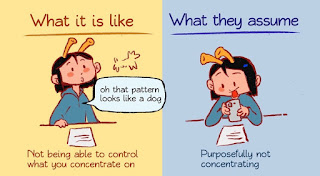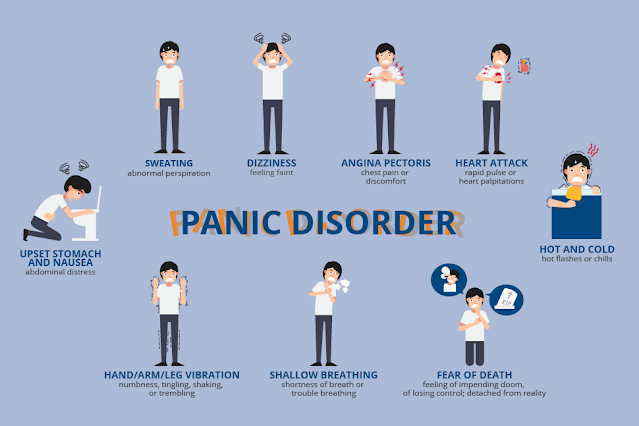ADHD and Vitamin D Deficiency
ADHD and Vitamin D Deficiency: Any Evidence?
Is there any connection between nutrient D levels and ADHD? A survey of the current proof:
We have invested a ton of energy taking a gander at connections between's nutrients, minerals, omega-3 unsaturated fats and amino acids (and their lacks), and ADHD. In any case, it is imperative to take note of that since low degrees of a specific supplement is seen close by the problem, it doesn't really imply that this lack is the reason for ADHD (for example connection doesn't infer causation). At the end of the day, the supplement inadequacy and ADHD manifestations may both be auxiliary impacts of a bigger essential driver, for example, a compound lack of metabolic brokenness.
On account of nutrient D, the relationship with ADHD is much more obfuscated than with a portion of different supplements that have a moderately solid association with the problem (iron, zinc, magnesium, and omega-3 unsaturated fats to give some examples). The measure of data in the writing is moderately scant, too. A hunt in the diary data set Pubmed (where this blogger gets the greater part of his articles and data) for "ADHD" and "nutrient D" turns up just a little modest bunch of query items, most of which center around different issues and just notice ADHD incidentally.
In any case, given the way that nutrient D is such a "hot" nutrient and has been a famous enhancement starting late, we ought to research a portion of its expected advantages as to ADHD and related problems. It would be ideal if you remember that huge numbers of these focuses beneath are more hypothetical or theoretical, in light of the fact that the greater part of the hard, solid proof in very much recorded clinical controlled examinations just doesn't exist right now. In any case, here are some potential manners by which nutrient D may help in instances of ADHD or related issues:
Nutrient D can support levels of the cell reinforcement glutathione in the cerebrum. One way that nutrient D does this is by managing a catalyst called gamma-glutamyl transpeptidase, which assumes a part in both the digestion and reusing of glutathione. We have talked for a long time about how cancer prevention agent shortages can intensify ADHD symptoms, and how unsaturated fats (to be specific omega-3's) are as often as possible regulated for ADHD and related issues. Given the high cosmetics of these omega-3 unsaturated fats in the mind, and their defenselessness to oxidation and harm in the focal sensory system, ensuring them by boosting cancer prevention agent levels (either legitimately or by implication) is a decent wagered.
One of the current hypotheses encompassing ADHD is that it is (in any event somewhat) an energy lack disorder, or is the aftereffect of hindered metabolic capacities in key districts of the focal sensory system. While exceptionally easy to refute, this hypothesis holds that disabled glucose digestion in different pieces of the mind might be a significant contributing element to the presence or seriousness of this issue.
While this blogger is presently nonpartisan on this inadequacy hypothesis, it is fascinating to take note of that nutrient D can help direct glucose transport into the mind, which would (from a certain perspective) improve this conceivable reason for the issue. It is accepted that nutrient D works by focusing on different compounds engaged with glucose transport and digestion. Considerably more investigation should be done to affirm this attestation, however, this might be another likely advantage of boosting nutrient D levels in the ADHD persistent.
Nutrient D may assume a part in catecholamine amalgamation. Catecholamines incorporate the synapses dopamine and norepinephrine, the two of which are accepted to be firmly directed and exceptionally associated with the treatment of ADHD (lacks of both dopamine and norepinephrine in the "holes" between neuronal cells are regularly found in instances of ADHD).
Nutrient D supports the impacts of a protein called choline acetyltransferase in the mammalian cerebrum. This catalyst is utilized in the assembling of another neuro transmitting specialist called acetylcholine. Acetylcholine is thought to assume a significant part in keeping up a condition of continued consideration, a basic deficiency in those with ADHD. All in all, keeping satisfactory degrees of nutrient D might help prop up lower levels of this consideration continuing neurochemical.
Learning and memory shortages, the two of which are intensely present in the ADHD populace, have been attached to pre-birth nutrient D insufficiencies in the rodent model. This includes a cycle called synaptic versatility, which identifies with memory development in a person. On the off chance that this discovery reaches out to people, it could have genuine ramifications on keeping up satisfactory nutrient D consumption in pregnant ladies.
Issues with fine engine control are here and there observed as an optional trademark in a small amount of the ADHD populace. These issues might be exacerbated in a nutrient D insufficient state.
Maybe the most grounded relationship, notwithstanding, might be between nutrient D and burdensome like indications, especially those related to occasional emotional problems (SAD). Kindly remember, notwithstanding, that reviews on nutrient D levels and misery are exceptionally factor; various examinations have been done on the point and discovered no such linkage between the two. We have recently examined potential associations among ADHD and SAD in a prior post.
This may bode well since nutrient D creation is set off by daylight, so in obscurity winter months, the degrees of this nutrient are regularly much lower (this may likewise be a significant contributing element with respect to why diseases run a great deal wilder throughout the winter months). All in all, nutrient D supplementation might be especially valuable in people with ADHD who additionally have co-occurring burdensome or tension-ridden manifestations.
To sum up: Vitamin D doesn't have the same number of articulated direct consequences for ADHD as do a portion of different nutrients, minerals, unsaturated fats and amino acids we have recently talked about. All things considered, the nutrient appears to have various neurodevelopmental and neuroregulatory properties and may work out in a good way for comorbid issues, for example, schizophrenia, discourse troubles, memory issues, and (maybe most emphatically) burdensome side effects. Kindly remember, in any case, that it may not be conceivable to just "supplement these issues away" with additional nutrient D. This blogger simply needs to call attention to that a lack in this nutrient frequently shows itself from multiple points of view, some of which intently equal ADHD or related problems. By and by, enhancing may not be an ill-conceived notion, particularly on the off chance that you live in a region that gets insignificant daylight for part of (or the entirety of) the year. Some harsh rules for nutrient D admission can be found here.







buy now https://www.linkedin.com/showcase/buy-ativan-online-for-anxiety-disorder-getyourpharmacy-com
ReplyDeleteIn this such stressful lifestyle you often face issues of anxiety issues. Basically, it’s a benzodiapendine medication which have the generic name of “lorazepam”. Doctors prescribe it to treat anxiety disorders, trouble sleeping and active seizures.
It also helps in treatment of issues such as status epilepticus, alcohol withdrawal and chemotherapy induce nausea and vomiting. You can buy Ativan online from any of the trusted online medical website.
It acts on the brain and nerves (central nervous system) in order to produce a calming effect. This drug works by enhancing the effects of a certain natural chemical in the body known as GABA.